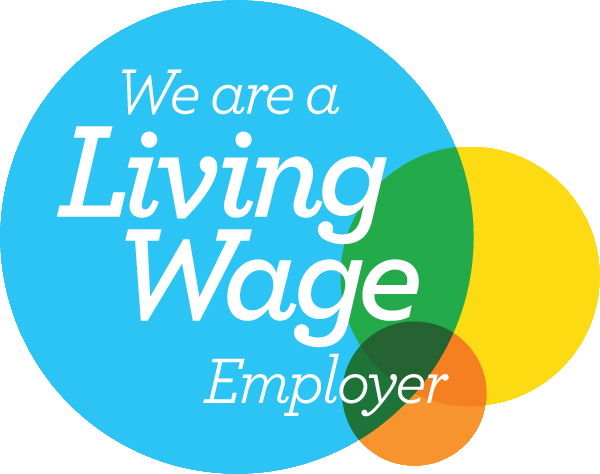Equal Opportunities Statement
We are an equal opportunity employer. We are committed to ensuring within the framework of the law that our workplaces are free from unfair discrimination on the grounds of colour, race, nationality, ethnic or national origin, gender (including gender change), sexual orientation, age, marital status, or disability.
We aim to ensure that our staff achieve their full potential and that all employment decisions are taken without reference to irrelevant or discriminatory criteria. We have adopted the following equal opportunity policy as a means of helping to achieve these aims.
What Is Discrimination?
Direct discrimination occurs where someone is put at a disadvantage on discriminatory grounds in relation to his or her employment. Direct discrimination may occur even when unintentional.
Examples:
A woman with young children fails to obtain a job because it is feared that she might be an unreliable member of staff because of the children.
A Sikh applicant for a post is not appointed because they would not so easily ‘fit in’ with the existing all white team, where the only tangible grounds for this belief are racial origin or religion.
A person is subjected to sexual innuendo or other offensive conduct of a sexual nature at work.
Indirect discrimination occurs where an individual’s employment is subject to an unnecessary condition which one sex or race/nationality finds more difficult to meet although on the face of it the condition or requirement is ‘neutral’.
Example
Full-time work - this would have a disparately adverse impact on more women with small children as they are generally accepted as taking the primary childcare role. It may not be justified if our business needs can still be met by more flexible working arrangements.
Disability discrimination occurs where an individual is unjustifiably disadvantaged in employment/recruitment for a reason connected with his/her/their disability unless the discrimination cannot be avoided by making reasonable adjustments.
Examples:
A requirement for staff to hold a valid driving licence for a job which involves little travelling.
Failure to recruit a wheelchair user without first considering whether the working arrangements or premises can reasonably be adapted to their needs.
Victimisation occurs where an individual is treated less favourably than colleagues because he/she has taken action to assert their statutory rights or assisted a colleague with information in that regard.
We are committed to ensuring that all our staff and applicants for employment are protected from unlawful discrimination in employment.
Implementing Equality of Opportunity
Recruitment and employment decisions will be made on the basis of fair and objective criteria. Our selection procedures are reviewed from time to time to ensure that they are appropriate for achieving our objectives and for avoiding unlawful discrimination.
The requirements of job applicants and existing members of staff who have or have had a disability will be reviewed to ensure that whatever possible reasonable adjustments are made to enable them to enter or remain in employment with us. Promotion opportunities, benefits and facilities of employment will not be unreasonably limited, and every reasonable effort will be made to ensure that disabled staff participate fully in the workplace.
Person and job specifications will be limited to those requirements which are necessary for the effective performance of the job. Interviews will be conducted on an objective basis and personal or home commitments will not form the basis of employment decisions except where relevant.
Appropriate training will be provided to enable staff to implement and uphold our commitment to equality of opportunity.
Working patterns will be reviewed to enable us to offer flexible working to staff and childcare responsibilities where possible. Where necessary provision will be made for training for staff returning to work following a break for domestic reasons.
Consideration will be given to developing action programmes to promote equality of opportunity. This will include, where appropriate, a programme of positive action to encourage the development of those who are comparatively under-represented in certain positions so that they can benefit from employment opportunities on equal terms.
All staff have a right to equality of opportunity and a duty to implement this policy. Breach of the equal opportunity policy is potentially a serious disciplinary matter. Anyone who believes that he or she may have been disadvantaged on discriminatory grounds is entitled to raise the matter through the grievance procedure.
In accordance with recommended practice the ethnic and gender composition of our staff and applicants for jobs will be monitored at all levels.
DE&I Policy
At Strillobyte we want everyone in the team to feel they belong, not just work here. Our DE&I policy is not something we pay lip-service to; we want to embed these values throughout all we do at Strillobyte.
We also want to equip everyone with a ‘diversity eye’ whilst doing their job — to encourage everyone to seek for different perspectives and ask difficult questions about who's not there. Everyone deserves an opportunity to thrive at work and that is the culture we are striving to create.
We want to learn to spot our biases and create a truly diverse and inclusive working environment. We believe that only by welcoming the people that challenge us, who push us to think outside of our comfort zones, will we be able to grow as a team and as a business.
We know this will be a team effort, and this policy outlines how we can hold ourselves accountable and make work safe and equitable for our entire team.
DE&I touches many aspects of employment, and this policy covers:
Hiring diverse teams
Communication
Belonging and education
We are constantly learning and will be building on our strategy for DE&I going forward. This is an open and transparent conversation we want to have with our team, so any thoughts or feedback are welcome.
Hiring diverse teams
The research is clear: ambitious goals are solved better by diverse teams. People with different backgrounds and experiences can bring new perspectives to the team. So, when we’re thinking about hiring and bringing on new talent, it’s a no-brainer that our focus is on ensuring we’re hiring diverse teams to help us reach our goals.
At Strillobyte, we hire people by assessing how their skill set fits the role, how their values and experiences add to our team’s diversity and what energy they bring to us. As an equal opportunities employer, we don't discriminate against team members or any candidates on the basis of gender identity or expression, sexual orientation, religion, ethnicity, age, neurodiversity, disability status, or any other aspect that makes them different. We recognise that these differences in physical ability, unique perspective and background add so much value and we are always looking for ways to empower this at Strillobyte.
Our primary goal is to ensure our team is truly representative of all groups within society and for each team member to feel respected and able to be their true self. In order to achieve this, we know we must:
Go out and actively look for the people we’re missing out on.
Find ways to attract them to come work for us.
Once we find the people we’re looking for, we need to make sure that they find a home in our environment and we want to invest in our team, so that they want to stay.
We are committed to:
Creating a diverse candidate pool.
Being conscious of our own bias in decisions.
Using unbiased language in our job ads.
Having a similar hiring process across all roles.
Putting together a diverse hiring team.
Sharing interview feedback privately and ask the same semi-structured questions to assess all candidates equally and further reduce risk of bias.
Never asking information that we don’t need to know.
Communication
At Strillobyte, we’re also committed to creating a welcoming and safe environment at work so that our team members can express themselves freely. Strillobyte has a zero-tolerance approach to any kind of discrimination.
There are three areas that we’d like to cover, and we believe these help to create a safe working environment for everyone:
Feedback - We’re always open to feedback, both positive and constructive. All team members will have regular catch ups with their managers, and it is a great time to flag any concerns or anything you feel can be improved. We will take any feedback on board and make appropriate changes to create a positive work environment for you.
Training - We know that training is a really important factor when it comes to diversity and inclusion which is why we’re committed to educating our team members to give them awareness and understanding of how to contribute to our diversity goals.
Inclusive language - This allows our team to feel valued and respected and able to drive our wider company vision and goals. Whether we like it or not, our words have consequences. They can include or exclude, even if we do not intend them to. At Strillobyte we pride ourselves on using inclusive language so that we can see all our team members as they want to be seen. We suggest all our team members update their pronouns on our HR system and update their email signature if they feel happy and comfortable doing so. We also have an Inclusive Language policy, outlining words that are now outdated, and what we can replace them with in our day to day at work.
Belonging
Belonging is an important aspect of diversity and inclusion. We want everyone to feel accepted and understood at Strillobyte - and fundamentally feel like they belong here.
As a small business, we do not yet have employee internal networks or groups. However, we firmly encourage everyone to join external networks or charities, and feedback any learnings to us so we can grow as an organisation.
Ongoing commitment
Agreeing to do better is not a one-time commitment: it takes consistent awareness, effort, and action. At Strillobyte, we are committed to continuous improvement and work around DE&I. We are dedicated to developing a transparent culture based on open dialogue and active listening to embed DE&I in our every day.
We will regularly review and evaluate our progress to highlight barriers to DE&I and the impact of our initiatives. This policy will be updated when necessary, and the responsibility to ensure we remain a progressive, understanding workplace is with the team as a whole.







